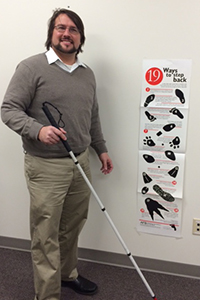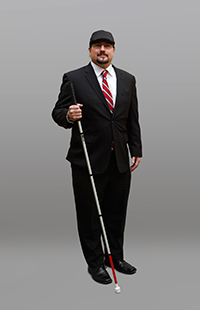A friend of mine sent me a link to an episode of NPR's "This American Life" on Dan Kish. I had not heard it yet, though I do listen to that show often. I listened to the piece right away, and I thought I would share my take on the piece.
Recently, you may have read a story or seen it on the news about the little boy whose white cane was taken away from him because of behavior reasons. I wanted to take a minute to discuss this situation and why this is so wrong. The purpose of the white cane is to be a tool to allow a person or child who is blind or visually impaired independence.

Each October, we mark National Disability Employment Awareness Month (NDEAM), a time to raise awareness about disability employment issues and celebrate the contributions of America’s workers with disabilities. The theme for 2014 is “Expect. Employ. Empower.”
I recently learned that John DeWitt passed away. He was the founder of DeWitt & Associates, an organization that provided technology assessment and training in New Jersey for persons who are blind or visually impaired. He also worked for the American Foundation for the Blind from 1978 to 1989 as a resource specialist. John's passing was a great loss to New Jersey, the blindness community, his family, and all of the people he touched through his work and volunteering.
Last night, I had the great opportunity to attend the American Foundation for the Blind's Helen Keller Achievement Awards fundraising gala at the Marriott Downtown in New York City. This was my first opportunity to attend the event, as I was in the area for work. I thought I would share with you my impression of this outstanding occasion.
You may have recently read the Wall Street Journal article by Lauren Weber about bosses asking employees to disclose whether they have a disability. Ms. Weber frames the issue pretty accurately, and I loved the comments included overall. Starting next week, all federal contractors (i.e., companies that do contract work for or with the U.S.



